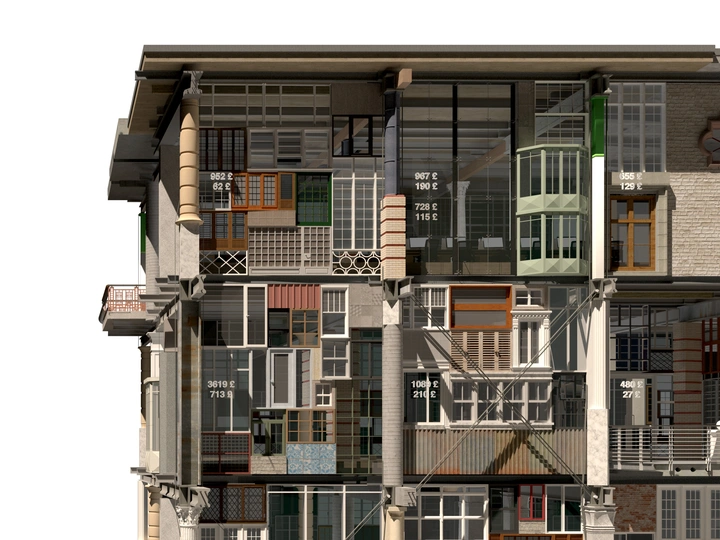Spolia Tectonic

My name is Dario Biscaro, I am a 27 years old architect based in London, UK.
Interested in craft techniques since a young age, I started my formal education studying Artistic disciplines in Venice. I hold a Bachelor of Science in Architecture from the Mendrisio Academy of Architecture in Switzerland, and a Master of Art in Architecture from the Royal College of Art in London, where I graduated one year ago.
I am passionate about manual labour with particular proficiency in woodworking, an interest that often merges with the way I communicate and practice architecture. Other interests I have relates to nature and art.
Alongside my studies, I maturated professional experiences in the field of architecture as an Intern at Maria Giuseppina Grasso Cannizzo in Vittoria (Sicily), as an Intern at Studio Anne Holtrop in Bahrain, as a Junior Architect at Fondamenta in Milan, as a Junior architect at Roi Carrera Architects in Locarno(Switzerland), and as a remote collaborator at Ted'A Architects. I am currently working, since the completion of my master, as a Part II architect at Hawkins\Brown in London.
My thesis project, which I am here also presenting, has received one of only three Commendations made by the judging panel of the 2022 RIBA President’s Medal. Over the course of the last year, the continuing development of the ideas and scopes delineated by that project, allowed me to present the same on multiple opportunities such as the finals of the Mayor of London's Entrepreneur Award, the finals of the Terra Carta competition, the finals of the RCA Innovation programme and public events held in London and Switzerland.
I am currently interested in building ways to better contribute with my passion and practice to the making of the systematic changes I would like to see in the built environment.
Spolia Tectonic originated in response to the highly wasteful and carbon-intensive practices that characterize the contemporary construction industry, its excessive dependency on extractive practices and the global logistics supply chain. In light of the necessity of the redefinition of the way we think about materials, the fundamental question that the project tries to address is what is the infrastructure that could sustain such a shift, and what is the role of designers in this new endeavour.
Spolia Tectonic consist of a collaborative platform that empowers spatial practitioners, developers, local authorities, users, and stakeholders, with the ability to source materials from upcoming demolitions and plan their future reuse. The project addresses three key barriers that are currently posing obstacles to reuse through the creation of an accessible source of information and physical infrastructure to stimulate collaboration, the promotion of a technical culture to provide knowledge on how to reuse, and the building of assurances to infuse trust among political, economic and legal institutions.
Through the adoption of the concept of “Spolia”, the ancient practice of the reuse of materials previously employed in other constructions, the project aims to open up new possible implications for a cultural and architectonical expression based on the reuse of historical material, while meeting the new challenges set by global environmental change. The result is a newly formed apparatus that connects resources, technology, aesthetics, and economy to ultimately bound within the tectonic of the building the premises for the change of the whole industry itself.
Initiated in 2022 as my thesis project, Spolia Tectonic developed while gradually understanding how widely shared responsibilities are in the built environment. Convinced that meaningful changes can only happen if all parties are involved, the project is now developing to become a tool of empowerment and agency.